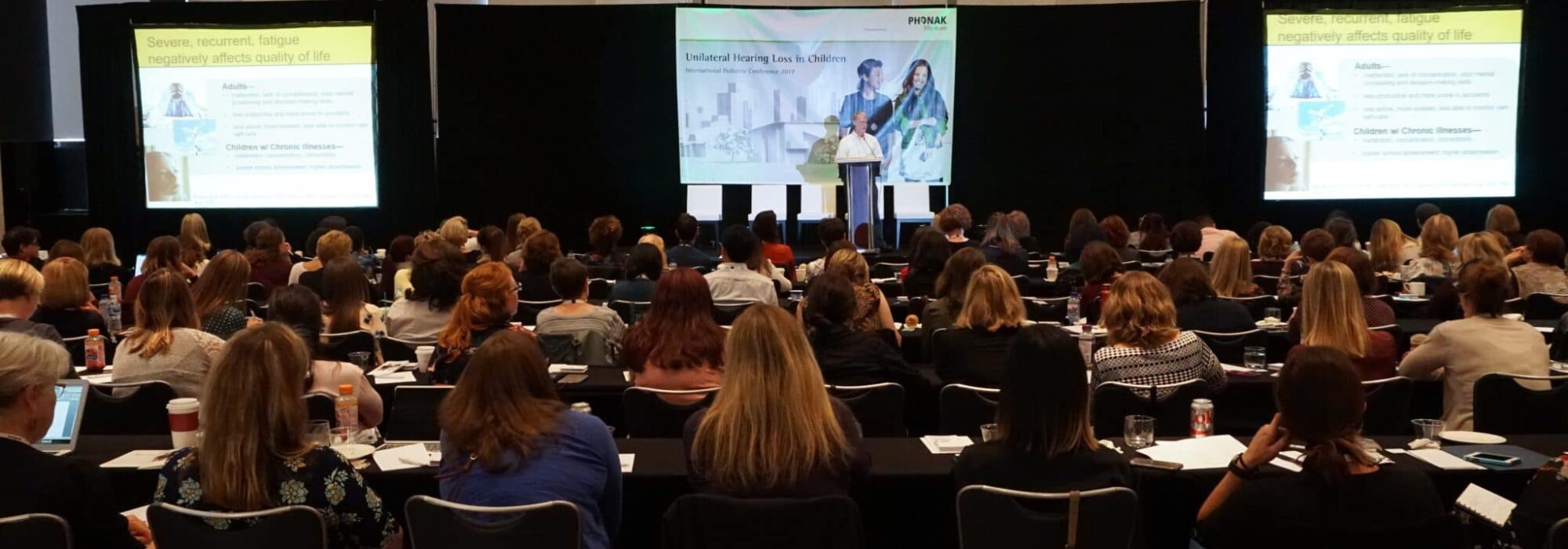
New ideas in the study of unilateral hearing loss
Hearing care professionals from around the world discussed current research and management of UHL in children.
As a pediatric audiologist, I have lacked confidence when treating children with unilateral hearing loss (UHL). The impact of this hearing loss can be significant and there has been little research to support a definitive treatment plan for this population.
You can imagine how excited I was to be able to attend Phonak’s first Unilateral Hearing Loss in Children Conference in Philadelphia, USA, to learn about current trends in treating children with UHL from key opinion leaders in pediatric audiology.
Dr. Anne Marie Tharpe (Chair) from Vanderbilt University (USA) put together an informative program related to UHL in children that included evidence from current research, a parent panel that discussed the family journey with hearing loss and a clinical panel to discuss current views on management of UHL. Topics included the latest implications of UHL, technological management approaches, family-centered perspectives, and contemporary management strategies.
From the attendance, it was clear that I was not the only audiologist looking for information. Approximately 350 hearing health care professionals from 16 countries attended the two day event to get the latest information about UHL in children.
Some highlights of the conference included:
• Dr. Dawna Lewis from Boystown National Research Hospital (USA), gave a lecture on the effects of UHL on children’s speech understanding in complex listening environments. She discussed that speech understanding may vary depending on the complexity of the listening environment and task. She also advised that we need to understand the types of real-world environments these children encounter in their daily lives. Hearing health care providers should consider complex, multi-talker audiovisual environments in our research and clinical evaluations to enhance our understanding of the effects of UHL.
• Dr. Erin Picou, from Vanderbilt University (USA), presented on investigations into CROS hearing aids to improve speech comprehension and listening effort in the classroom. Dr. Picou’s talk described preliminary data that suggests CROS has the potential to help children with unilateral hearing loss in modern classrooms.
• Dr. Hillary Snapp from the Department of Otolaryngology, University Of Miami (USA), discussed the evaluation and management of single-sided deafness (SSD) using bone conduction devices. She concluded that a softband bone conduction device may improve auditory development of young children with SSD. Children older than 5 years of age may be candidates for a bone anchored device if non-invasive solutions are not an option. She advised that these solutions require close and consistent monitoring.
Children with unilateral hearing loss face a unique set of challenges, and require a comprehensive treatment approach. As an attendee, I left this conference feeling inspired with updated ideas and solutions for managing these children.
If you would like to learn more about UHL, here is a link to all presentations (including pdfs and videos) from the conference.
Additionally, you may want to read a recent online interview with Dr. Anne Marie Tharp where she explains how modern technology can change the lives of children with UHL.
